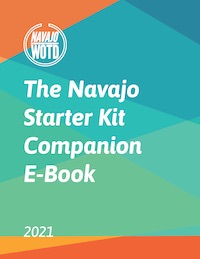obáama(self)
all by my
oh bah mah
Continuing today with words adopted by the Navajo language, obáama is one of those unique words that use the letter ‘m.’ In most cases, you could use the word to simply imply that an act was performed completely autonomously. Furthermore, there are times when you may hear this word used excessively in order to convey immediate hardship experienced by the speaker, with the implication that such hardship is directly unwanted nor desired.
Example: Yádiláh! I had to bring the sheep in óbáámá self!
Also, Happy April 1st!
